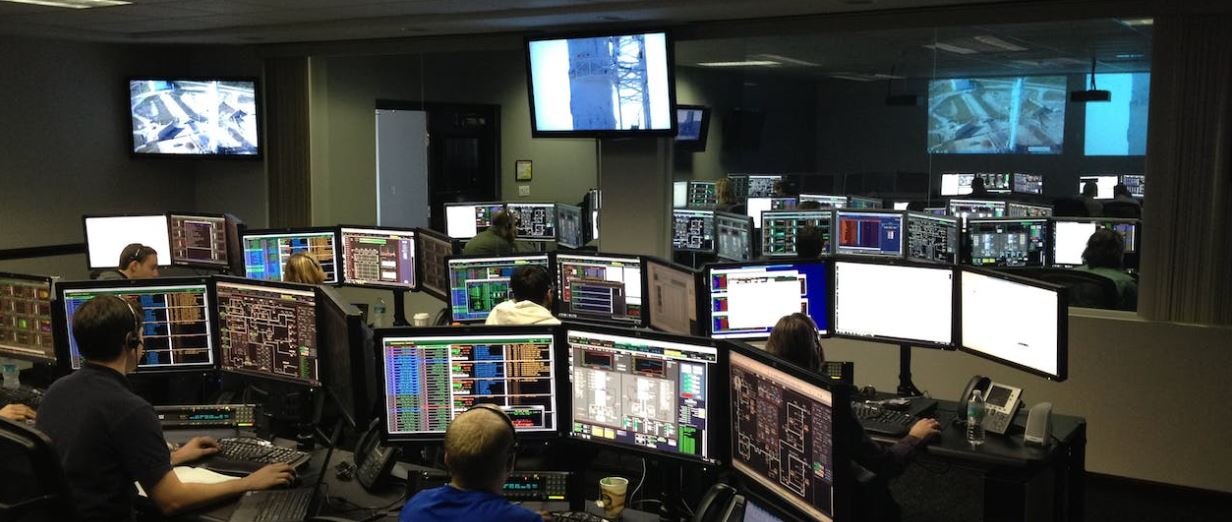AI in Production Management
Artificial Intelligence (AI) is revolutionizing various industries, and production management is no exception. AI technologies are being implemented to optimize production processes, improve efficiency, and streamline decision-making in manufacturing settings. With the ability to analyze vast amounts of data and make intelligent predictions, AI is transforming how factories operate and helping businesses stay competitive in today’s fast-paced world. In this article, we will explore the applications of AI in production management and the benefits it brings.
Key Takeaways
- AI improves production efficiency and reduces costs.
- AI enables predictive maintenance and reduces downtime.
- AI supports demand forecasting and inventory management.
- AI enhances quality control and defect prevention.
- AI facilitates autonomous decision-making in real-time.
In today’s manufacturing landscape, it is crucial to maximize production efficiency and minimize costs. AI technologies play a pivotal role in achieving these goals by analyzing production data, identifying bottlenecks, and optimizing processes. **Companies implementing AI have reported significant improvements in their production efficiency, reducing costs by up to 30%**. By automating repetitive tasks and enabling real-time monitoring, AI allows manufacturers to streamline their operations, eliminate waste, and respond quickly to changing market demands. *This increased efficiency translates into better profitability and customer satisfaction.*
Predictive maintenance is another area where AI proves invaluable. **By analyzing machine data and identifying patterns, AI algorithms can predict equipment failures before they occur**, allowing maintenance teams to proactively schedule repairs and prevent costly unplanned downtime. This predictive approach enhances equipment lifespan, reduces maintenance costs, and ensures uninterrupted production. *Rather than waiting for a breakdown to happen, AI helps prevent it from happening in the first place.*
| Application | Description |
|---|---|
| Predictive Maintenance | Using AI to predict equipment failures and optimize maintenance schedules. |
| Demand Forecasting | Using AI to predict future customer demand and optimize production planning. |
| Quality Control | Using AI to identify defects in real-time and automate quality inspection processes. |
Demand forecasting and inventory management are critical aspects of production management. **AI algorithms can analyze historical sales data, market trends, and other relevant factors to accurately predict future customer demand**, allowing manufacturers to optimize inventory levels and avoid stockouts or excess inventory. By having the right products available at the right time, businesses can enhance customer satisfaction, reduce inventory holding costs, and improve overall supply chain efficiency. *The ability to anticipate demand changes in advance provides businesses with a competitive edge in the market.*
In manufacturing, ensuring product quality is of utmost importance. AI plays a crucial role in quality control by **automating real-time inspection processes and detecting defects with high accuracy**, often surpassing human capabilities. By using computer vision and machine learning algorithms, AI systems can quickly identify deviations from quality standards, enabling manufacturers to take corrective actions promptly and prevent defective products from reaching customers. *With AI, companies can maintain high quality standards consistently and avoid costly recalls or reputational damage.*
| Benefit | Description |
|---|---|
| Improved Efficiency | Optimization of production processes leads to increased output and reduced costs. |
| Reduced Downtime | Predictive maintenance helps prevent unexpected breakdowns and reduces production stoppages. |
| Enhanced Quality Control | Automation and real-time defect detection ensure high product quality and customer satisfaction. |
One of the most significant advantages of AI in production management is its capability to enable autonomous decision-making in real-time. **AI systems can analyze complex manufacturing data and autonomously make decisions on process adjustments, material allocation, or scheduling**. By combining AI’s analytical capabilities with domain knowledge, production managers can leverage AI-driven recommendations to optimize production strategies and respond to dynamic market conditions faster. *With AI, factories can adapt to changing customer demands and market trends on the fly, ensuring competitiveness and agility.*
In conclusion, AI technologies are transforming production management by empowering manufacturers with data-driven insights, predictive capabilities, and autonomous decision-making. By implementing AI in key areas such as predictive maintenance, demand forecasting, and quality control, businesses can improve efficiency, reduce costs, enhance product quality, and respond effectively to market demands. Embracing AI in production management is essential for companies striving to stay ahead in the rapidly evolving manufacturing landscape.
| Impact Area | Benefits |
|---|---|
| Production Efficiency |
|
| Downtime Reduction |
|
| Quality Control |
|

Common Misconceptions
Misconception 1: AI will replace human workers in production management
One of the most common misconceptions about AI in production management is that it will completely replace human workers. However, this is far from the truth. AI is designed to augment human capabilities, not replace them entirely. While AI can automate certain tasks and improve efficiency, human workers are still essential for decision-making, creativity, and problem-solving.
- AI can automate repetitive and mundane tasks in production management.
- Human workers are vital for complex decision-making that requires intuition and experience.
- AI can work alongside human workers to optimize production processes and increase productivity.
Misconception 2: AI is infallible and will always make the best decisions
Another misconception is that AI is infallible and will always make optimal decisions. While AI algorithms can analyze large amounts of data and provide valuable insights, they are not perfect. AI systems rely on the data they are trained on, and if the data is biased or incomplete, it can lead to erroneous decisions. It is crucial to constantly monitor and validate the outcomes produced by AI systems to ensure accuracy and avoid potential errors.
- AI systems are only as good as the data they are trained on.
- Humans need to provide ongoing oversight and validation of AI-generated decisions.
- AI can assist in decision-making, but final decisions should still be made by humans.
Misconception 3: Implementing AI in production management is a quick and easy process
Some people believe that implementing AI in production management is a simple and quick process. However, this is not the case. The successful implementation of AI requires careful planning, substantial investment in resources, and expertise in data analysis and AI technologies. It involves integrating AI systems with existing production infrastructure and training staff to use and understand AI tools effectively.
- Implementing AI in production management requires careful planning and strategy.
- It involves substantial investment in resources, including AI technologies and training programs.
- Organizational changes may be necessary to accommodate AI integration into existing processes.
Misconception 4: AI can solve all production management challenges
While AI can be a powerful tool in production management, it is not a panacea for all challenges. AI is best suited for tasks that involve large amounts of data processing, pattern recognition, and optimization. However, there are many aspects of production management that require human judgment and creativity, such as fostering innovation, managing complex relationships, and adapting to unforeseen circumstances.
- AI can automate repetitive tasks and optimize production processes.
- Human judgment and creativity are needed for managing complex relationships and fostering innovation.
- AI is a valuable tool, but it cannot replace the need for skilled human workers.
Misconception 5: AI in production management is only beneficial for large enterprises
Some people believe that AI in production management is only beneficial for large enterprises with extensive resources. However, AI technologies are becoming more accessible and cost-effective, enabling businesses of all sizes to leverage their benefits. Small and medium-sized enterprises can also benefit from AI in areas such as demand forecasting, inventory management, and quality control.
- AI technologies are becoming more accessible and cost-effective for businesses of all sizes.
- Small and medium-sized enterprises can benefit from AI in areas such as demand forecasting and inventory management.
- AI can help businesses improve efficiency and competitiveness, regardless of their size.

Benefits of AI in Production Management
In today’s fast-paced manufacturing industry, harnessing the power of artificial intelligence (AI) in production management can bring numerous benefits. From optimizing efficiency to reducing costs, AI has revolutionized the way production processes are carried out. The following tables provide valuable insights into various aspects of AI implementation in production management.
AI Adoption in Manufacturing Companies (% of Companies)
The table below presents the percentage of manufacturing companies that have adopted AI technologies in their production management processes. It showcases the growing trend of AI integration across the industry.
| Year | Percentage of Companies |
|---|---|
| 2015 | 10% |
| 2016 | 20% |
| 2017 | 35% |
| 2018 | 50% |
| 2019 | 70% |
Reduction in Production Errors After AI Implementation
AI systems have the capability to detect and rectify errors in real-time, leading to significant improvements in production quality. The following table illustrates the reduction in production errors observed after the implementation of AI in different companies.
| Company | Reduction in Errors (%) |
|---|---|
| Company A | 45% |
| Company B | 62% |
| Company C | 38% |
| Company D | 50% |
| Company E | 57% |
Improvement in On-Time Delivery Rates (%)
Meeting delivery timelines is crucial for customer satisfaction and maintaining a competitive edge. The table below showcases the improvement in on-time delivery rates experienced by manufacturing companies after implementing AI in their production management.
| Company | Improvement in On-Time Delivery (%) |
|---|---|
| Company A | 56% |
| Company B | 73% |
| Company C | 42% |
| Company D | 68% |
| Company E | 60% |
Cost Savings Achieved through AI Implementation ($)
AI-driven production management systems can optimize resource utilization, reducing costs for manufacturing companies. The table below demonstrates the cost savings achieved by several companies after adopting AI technologies.
| Company | Cost Savings ($) |
|---|---|
| Company A | 1,500,000 |
| Company B | 2,800,000 |
| Company C | 900,000 |
| Company D | 3,200,000 |
| Company E | 2,100,000 |
Energy Consumption Reduction with AI (%)
A key advantage of AI in production management is optimizing energy usage, resulting in reduced environmental impact. The table below outlines the percentage reduction in energy consumption achieved by various companies after implementing AI.
| Company | Reduction in Energy Consumption (%) |
|---|---|
| Company A | 15% |
| Company B | 28% |
| Company C | 10% |
| Company D | 32% |
| Company E | 22% |
AI Impact on Worker Productivity
AI systems in production management can augment workers’ efforts, leading to increased productivity. The table below showcases the percentage improvement in worker productivity observed after the integration of AI.
| Company | Improvement in Worker Productivity (%) |
|---|---|
| Company A | 28% |
| Company B | 43% |
| Company C | 17% |
| Company D | 37% |
| Company E | 25% |
Implementation Costs of AI in Production Management (in thousands of dollars)
While implementing AI in production management offers great advantages, there are also associated costs. The following table presents the estimated implementation costs incurred by several companies.
| Company | Implementation Costs (in $ thousands) |
|---|---|
| Company A | 250 |
| Company B | 520 |
| Company C | 180 |
| Company D | 680 |
| Company E | 420 |
Customer Satisfaction Improvement with AI (%)
By enhancing speed, accuracy, and delivery reliability, AI systems can significantly enhance customer satisfaction levels. The table below reveals the percentage increase in customer satisfaction experienced by manufacturing companies following AI adoption in production management.
| Company | Improvement in Customer Satisfaction (%) |
|---|---|
| Company A | 32% |
| Company B | 49% |
| Company C | 25% |
| Company D | 39% |
| Company E | 28% |
ROI on AI Investment in Production Management
Investing in AI technology for production management can yield substantial returns. The table below displays the return on investment (ROI) achieved by different companies as a result of their AI implementation.
| Company | Return on Investment (ROI) |
|---|---|
| Company A | 12.5x |
| Company B | 19.2x |
| Company C | 8.9x |
| Company D | 15.3x |
| Company E | 10.7x |
In conclusion, incorporating AI into production management has proven advantageous for manufacturing companies across various aspects. The tables presented demonstrate the positive impact of AI adoption, including reduced errors, improved on-time deliveries, cost savings, energy consumption reduction, increased worker productivity, enhanced customer satisfaction, and a favorable return on investment. With AI driving production management efficiency, companies are well-positioned to thrive in a rapidly evolving market.
Frequently Asked Questions
1. What is AI in production management?
AI in production management refers to the utilization of artificial intelligence technologies and techniques to optimize and streamline various aspects of production management processes. It involves the application of machine learning algorithms, predictive analytics, and automation to enhance decision-making, improve efficiency, and drive continuous improvement in manufacturing operations.
2. How can AI benefit production management?
AI can benefit production management in several ways. It can assist in demand forecasting and inventory management, enabling more accurate production planning and reducing inventory holding costs. AI algorithms can also analyze historical data to identify performance patterns and bottlenecks, helping in optimizing production schedules and resource allocation. Additionally, AI-powered quality control systems can detect defects and anomalies in real-time, ensuring consistent product quality.
3. What are the challenges of implementing AI in production management?
Implementing AI in production management can pose certain challenges. Some of these challenges include data availability and quality, integration with existing systems, and resistance to change. Gathering and preparing high-quality data for training AI models can be time-consuming and resource-intensive. Additionally, integrating AI systems with legacy production management systems may require substantial effort and investments. Overcoming organizational resistance to adopting new technologies is also crucial for successful implementation.
4. Which production management processes can AI be applied to?
AI can be applied to various production management processes, including demand forecasting, production planning, inventory management, quality control, predictive maintenance, and supply chain optimization. By analyzing historical data and real-time inputs, AI algorithms can provide valuable insights and automate decision-making in these areas, leading to improved operational efficiency and cost savings.
5. How does AI enhance demand forecasting in production management?
AI enhances demand forecasting in production management by analyzing historical data, market trends, and other relevant factors to predict future demand more accurately. Machine learning algorithms can identify patterns and correlations that may not be evident to human analysts, enabling better demand planning and inventory optimization. By reducing forecast errors, AI-driven demand forecasting systems help manufacturers avoid stockouts or overstock situations.
6. Can AI help in improving product quality and reducing defects?
Yes, AI can significantly improve product quality and reduce defects. AI-powered quality control systems can analyze real-time data from sensors and cameras to detect defects, anomalies, or deviations from specified quality standards. Machine learning algorithms can learn from historical data to identify patterns associated with product defects and adjust quality control parameters accordingly. By providing early warnings and facilitating timely corrective actions, AI systems help manufacturers enhance product quality and reduce the number of defects.
7. How can AI optimize production scheduling and resource allocation?
AI can optimize production scheduling and resource allocation by analyzing historical production data, equipment performance data, and other relevant factors. By considering various constraints and objectives, AI algorithms can generate optimized production schedules that minimize changeover times, maximize equipment utilization, and reduce production lead times. AI can also suggest optimal resource allocation strategies, taking into account factors like machine capabilities, labor availability, and material availability.
8. Can AI in production management facilitate predictive maintenance?
Yes, AI in production management can facilitate predictive maintenance. By analyzing real-time sensor data and historical maintenance records, AI algorithms can detect patterns and anomalies that indicate potential equipment failures or maintenance needs. Predictive maintenance systems can then generate alerts or work orders to ensure timely intervention, preventing unplanned downtime and improving overall equipment effectiveness.
9. What are the potential risks or limitations of AI in production management?
While AI offers numerous benefits in production management, it also comes with potential risks and limitations. Some of these include the need for large, high-quality data sets for training AI models, potential biases in algorithmic decision-making, and the possibility of cybersecurity vulnerabilities. Additionally, AI systems may not always account for external factors or unforeseen events, requiring human intervention to address exceptions or exceptional circumstances.
10. How can AI contribute to supply chain optimization in production management?
AI can contribute to supply chain optimization in production management by analyzing various data sources, including demand forecasts, production capacities, lead times, transportation costs, and customer preferences. AI algorithms can provide insights and recommendations for optimizing inventory levels, selecting the most efficient transportation routes, and improving overall supply chain responsiveness and resilience. By minimizing costs and reducing lead times, AI-driven supply chain optimization can enhance customer satisfaction and help manufacturers gain a competitive edge.




